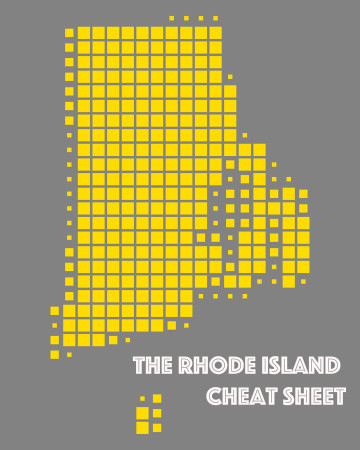“The RI Cheat Sheet”—Start Your Monday with the Latest Numbers, Data, and Factoids - March 11, 2019
Monday, March 11, 2019
Welcome to this week’s edition of the RI Cheat Sheet.
The weekly feature focuses on important and interesting numbers, data, and high-value factoids that impact Rhode Island and the economy.
1) Failure to Invest in State Universities
GET THE LATEST BREAKING NEWS HERE -- SIGN UP FOR GOLOCAL FREE DAILY EBLASTFailure to invest in higher education will adversely impact the RI and the rest of New England’s economy, says the Boston Federal Reserve. “Public higher education produces many benefits that are vital to the New England economy, but it is increasingly at risk following years of state budget cuts. In 2017 in New England, real per-student state funding for higher education was lower than it was in 2008, with a double-digit decline in each of the region’s states except Maine.”
“This Research Report shows that reductions in state appropriations have resulted in higher tuition and fees, greater student loan debt, decreased resources for education and research, and fewer graduates and approved patent applications from public colleges and universities," said the Fed's report.
"As states reduce funding for public universities in order to close budget gaps, what impact do these cuts have on the schools’ research productivity? This paper measures research output as the number of patent applications filed by public universities and approved by the U.S Patent and Trademark Office," according to the Fed's research.
2) Rhode Islanders Stay Home.
Between 40 and 60 percent of Rhode Islanders are native.
Nearly six in ten Americans (58.5 percent) currently reside in the state where they were born, says Richard Florida of CityLab.
Poorer states in the midwest and deep south have the highest percentages — 60 to 75 percent are natives.
3) Rhode Island is a Good Place for Babies
The national average is 23 percent of babies are born into poverty. In Rhode Island, the number is 20 percent.
Rhode Island is home to 33,067 infants and toddlers representing 3.1 percent of the population.
As many as 41 percent of Rhode babies and toddlers live in households with incomes less than twice the federal poverty level, according to stateobabies.org.
Overall, Rhode Island scored well for babies due to the state's healthcare coverage of babies and toddlers.
4) American History Void
Only 27 percent of Rhode Islanders know basic American history — Rhode Island ranks 20th.
The Woodrow Wilson Foundation found that in the highest-performing state, only 53 percent of the people were able to earn a passing grade for U.S. history. People in every other state failed; in the lowest-performing state, only 27 percent were able to pass. Only Vermont residents passed muster.
“Unfortunately, the Woodrow Wilson Foundation has validated what studies have shown for a century: Americans don’t possess the history knowledge they need to be informed and engaged citizens,” Woodrow Wilson Foundation President Arthur Levine said.
The survey found only 15 percent of American adults could correctly note the year the U.S. Constitution was written and only 25 percent knew how many amendments there are to the U.S. Constitution. Further, 25 percent did not know that freedom of speech was guaranteed under the First Amendment, and 57 percent did not know that Woodrow Wilson was the commander in chief during World War I.
The top four states following Vermont were Wyoming, South Dakota, Montana and Virginia.
“American history education is not working, as students are asked to memorize dates, events and leaders, which the poll results shows are not retained in adulthood,” Levine said.
Related Articles
- “The RI Cheat Sheet”—Start Your Monday with the Latest Numbers, Data, and Factoids - March 4, 2019
- “The RI Cheat Sheet”—Start Your Monday with the Latest Numbers, Data, and Factoids - Feb 25, 2019
- “The RI Cheat Sheet”—Start Your Monday with the Latest Numbers, Data, and Factoids - Feb 18, 2019
- Introducing “The RI Cheat Sheet”—Start Your Monday with the Latest Numbers, Data, and Factoids





